The Bibliophile, Drew Marvin Frayne
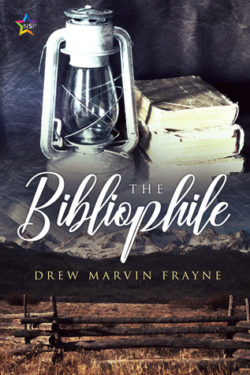 Rating: 5 Stars
Rating: 5 Stars
Publisher: NineStar Press
Genre: Gay Historical Romance
Tags: Journal/Diary/Epistolary Format, Historical – American West 1888-1890. Literary Writing, Love, Lit-Erotic, Death of Secondary Character, Domestic/Daddy Kink
Length: 221 Pages
Reviewer: Kazza K
Purchase At: amazon.com, NineStar Press
Blurb:
Nathanial Goldsmith is the only son of the richest man in the Idaho territory, Jessum Goldsmith, the Silver Baron of the Western Lands, as he is called in all the newspapers. But life in the late nineteenth-century American West weaves no magic spell for Nathanial, who longs for the academic worlds his father has forced him to leave behind.
To toughen him up, Nathanial’s father has indentured him to a ranchman, Cayuse Jem, a large, raw-boned, taciturn man Nathanial’s father believes will help teach his son to “become a man.” Cut off from his books and the life he has always known, Nathanial is not only forced to co-exist with Cayuse Jem, but to truly get to know him. In doing so, Nathanial discovers there is more to this silent horseman than meets the eye. And, in the process, Nathanial also learns a few things about life, about human nature, and about the differences in being a man and a boy…
**NSFW REVIEW**
Review:
I do not know what kind of man I am, or what kind of man I shall become. I do know, however, what kind of man I admire.
Nathaniel Goldsmith has kept a journal off and on during his youth, mostly when he experiences tedium or is concerned by difficult events that are out of his control, ones generally involving his father. He is the only son of Jessum Goldsmith, a wealthy man who has been dubbed the Silver Baron of the Western Lands by the press. Nathaniel has happily been away in Boston while studying for the past four years. However, his father believes in a man working with his hands and using his wiles, being a man’s man, definitely not having their head in books, or their heart in libraries and humanities. Idaho is to become a state soon enough and he has his eyes on politics for himself, for his son, and the best way to do that is for his heir to know the land and help out in the family business. It’s to this end he calls Nathaniel back home to the Idaho Territory from university, effectively ending his son’s dreams of teaching, libraries, of academia.
Nathaniel is resigned to his fate but exceedingly disappointed his father has summoned him home from somewhere he felt he 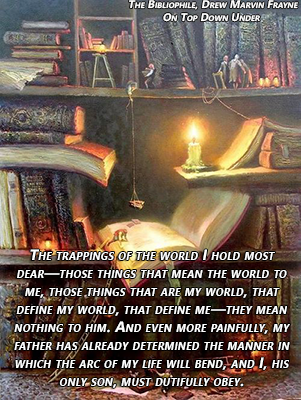 fitted in, so easily able to access the books that are his great love and passion. He knows everything has irrevocably changed for him now that he is eighteen. Although the money itself has never been something that has meant much to Nathaniel, he has known a nice lifestyle, including boarding school and the family’s private salon car. But now, for at least several months, he is to assist a man who works for his father, raising, training, and selling the beautiful and sought after appaloosas, a Scotsman who goes by the name of Cayuse Jem. He lives a rustic life in a small shack on the edge of Goldsmith land. So instead of the mines, it’s with this “slovenly” horse wrangler that Goldsmith senior believes his son will begin the education required to harden him up into the “real man” he expects his son to be.
fitted in, so easily able to access the books that are his great love and passion. He knows everything has irrevocably changed for him now that he is eighteen. Although the money itself has never been something that has meant much to Nathaniel, he has known a nice lifestyle, including boarding school and the family’s private salon car. But now, for at least several months, he is to assist a man who works for his father, raising, training, and selling the beautiful and sought after appaloosas, a Scotsman who goes by the name of Cayuse Jem. He lives a rustic life in a small shack on the edge of Goldsmith land. So instead of the mines, it’s with this “slovenly” horse wrangler that Goldsmith senior believes his son will begin the education required to harden him up into the “real man” he expects his son to be.
Nathaniel is less than impressed with Cayuse Jem in the beginning. He cannot fathom what this man can teach him, other than increasing his boredom and contributing to a further decline of his grey matter. Cleaning up horse shit and giving one of them an occasional sugar cube is nothing of note. Milking a cow. Sweeping, fetching water, cleaning. None of it seems viable or valuable. He feels there are no lessons here, only servitude.
Nonetheless, I am counting down the days to when this accursed “lesson” ends.
Although I understood the differences with his father, that he was commanded and not considered, that Cayuse Jem, as a seeming extension of his father, appeared as if he would be his “jailer,” Nathaniel came across as rather supercilious in the beginning.
I may be sent here to work for this man, yet he is naught but a glorified ranch hand, and while I sometimes loathe my name, I am Nathanial Goldsmith, son of Jessum Goldsmith.
But somewhere along the way that changes. I suspect it was when he grew more dialectical in his thinking. When he became aware of other elements that help create a well-rounded individual. All I know is I became emotionally engaged as the writing suddenly became more personal with more character depth. Mostly, the person behind the main voice became someone I cared about instead of an annoyance. I went from struggling to pick the book up to not wanting to put the book down. It came to bed with me at night and travelled about with me during the day so it was easily accessed. I also remember thinking, after my change of heart, that it would have been a complete travesty had I not finished.
This book, this well crafted, intelligent, somewhat stealthy book, gives the reader a snapshot into another era via an eighteen-year boy experiencing life in Idaho, America, predominantly throughout 1888 but forward until 1890. The writing transports you, giving the reader a decent sense of time and place. It also chronicles Nathaniel’s coming of age. Everything Nathaniel experiences he relays back to us via his diarised thoughts and feelings and, soon enough, I couldn’t wait for the next entry.
Nathaniel likes to analogise his current plight to the classics, history, mythology. The story is clearly written by someone who knows and loves these things themselves because it flows seamlessly from a current event to that of someone or something of note from a book or history. Nathaniel names their milking cow Io, and the horse Cayuse Jem gifts him becomes Boadicea as she is strong, beautiful, the leader of her herd – and so on….
I have swept stalls, polished tack, and fetched pail after pail of water—pail after pail!—until my limbs felt ready to flee from my torso for their own sake and sanity. It is fitting, indeed, that my mind keeps wandering to the tale of Heracles and his many woeful labors.
Although the journal entries can be as mundane as mucking out stables, cleaning, sweeping, to the unexpected joy of  achieving something new like cooking, as time spent at the cabin passes, there are also events Nathaniel never expected he would write about because there is certainly no ennui in regards to these situations: Illness, friendship, loss, meeting and helping the Nez Perce Indians, his first sexual experience, love, and beyond. Acceptance, and becoming the best person he can possibly be, one he likes and that suits him, is a powerful theme. So is being a complete person, and finding a Heaven in an expected Hell.
achieving something new like cooking, as time spent at the cabin passes, there are also events Nathaniel never expected he would write about because there is certainly no ennui in regards to these situations: Illness, friendship, loss, meeting and helping the Nez Perce Indians, his first sexual experience, love, and beyond. Acceptance, and becoming the best person he can possibly be, one he likes and that suits him, is a powerful theme. So is being a complete person, and finding a Heaven in an expected Hell.
That Nathaniel teaches Cayuse Jem to read is something that gives him a great deal of joy and fulfils his need to teach. It helps to build a bridge between the two men that is already developing foundations in other areas, like respect, care, and the solidarity of mutual beliefs. He also learns how to ride a horse properly under Cayuse Jem’s tutelage, and is taught how to swim by his friend Motsqueh. Both of which he never thought he could value as much as reading or studying in a formal setting, yet he does.
It’s interesting to see the change of Cayuse Jem’s importance and relevance in Nathaniel’s eyes. To see it reflected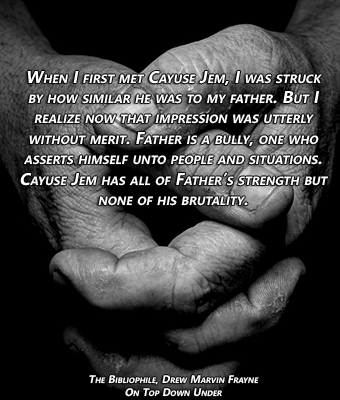 back at him. In comparison to the small Nathaniel, he’s a bear of a man, broad, hirsute, burly. He’s strong and not particularly garrulous, and while economical with his words they are always thoughtful and positive. Cayuse Jem may work for Jessum Goldsmith, raising and training appaloosa’s – originally the Nez Perce’s breed – but that is where any similarity ends. He lives a fairly spartan existence, he’s gentle with his horses, he’s equitable with and toward others. His best friend happens to be from the Nez Perce tribe, Chuslum. Chuslum’s partner is also Nez Perce, a younger man named Motsqueh. Motsqueh and Nathaniel become so close that Nathaniel calls him brother.
back at him. In comparison to the small Nathaniel, he’s a bear of a man, broad, hirsute, burly. He’s strong and not particularly garrulous, and while economical with his words they are always thoughtful and positive. Cayuse Jem may work for Jessum Goldsmith, raising and training appaloosa’s – originally the Nez Perce’s breed – but that is where any similarity ends. He lives a fairly spartan existence, he’s gentle with his horses, he’s equitable with and toward others. His best friend happens to be from the Nez Perce tribe, Chuslum. Chuslum’s partner is also Nez Perce, a younger man named Motsqueh. Motsqueh and Nathaniel become so close that Nathaniel calls him brother.
The difficulty facing the Nez Perce is given page time. While it isn’t ever heavy-handed observation, it’s hard to read about people being run off land that was rightfully theirs, about hypocritical ideas of what is ‘civilised.’
There is a definite kink to this book – daddy kink, not as in ‘call me daddy’, but as in a surrogate father figure, some expectations, and a style of domestic discipline. Not that there is any punishment, rather a sir/boy relationship where there are some quite distinct roles and ideas. I don’t remember Cayuse Jem’s age being mentioned but he would have to be in his mid thirties plus, there’s a fair age gap. I think Cayuse Jem called Nathaniel ‘Nat’ twice in the book, at least that’s Nathaniel’s recollections, the rest of the time it’s ‘boy’. Nathaniel only ever refers to Cayuse Jem as ‘sir’ in any and all dialogue.
He wrapped his large arms around my waist, and I rested my head against him. He took the soap and rubbed my body with it—my chest, my stomach, my own engorged member and loins. “You do understand what is happening, boy, yes?”
“Yes, sir,” I sighed.
“And how do you feel about it?” (…)
“I am most happy, sir,” I said.
In response, Cayuse Jem kissed me.
…
Cayuse Jem took my face in his large, brawny hands. “You belong to me now, boy. Body and soul.”
“But my father—”
“I am your father now,” Cayuse Jem said thickly. “I am your family. And I am your husband. If you will have of me.”
Bits and Pieces:
Is this book perfect? No. It can be a bit insular because of the writing style. Nathaniel’s sister Dora is mentioned a 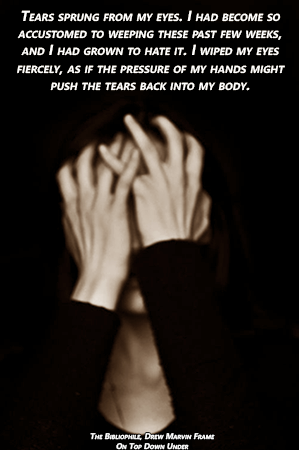 couple of times, that she has an arranged marriage looming, and then no more, but journals or diaries are notoriously one-sided for distinct reasons – they’re for the person writing them. Journals/diaries are usually factual or they serve artistic license, the latter is the case here. However, having said that, there is fact entwined within fiction in The Bibliophile.
couple of times, that she has an arranged marriage looming, and then no more, but journals or diaries are notoriously one-sided for distinct reasons – they’re for the person writing them. Journals/diaries are usually factual or they serve artistic license, the latter is the case here. However, having said that, there is fact entwined within fiction in The Bibliophile.
One of the most clever aspects of this book, that helps gives The Bibliophile a feeling of historical and personal authenticity, is that every new entry is headed up by a date and some dates have more words to the entry than others. The book isn’t written in chapters, it’s written as journal entries. Everything is according to situations, happenings, or feelings Nathaniel has surrounding any given day. It’s how anyone writing a journal or diary confesses their emotions or experiences, no two days are exactly the same. Sometimes nothing much happens, sometimes it’s hectic. The entries reflect that in their differing sizes and sometimes in the way they are spaced days, or longer, apart.
I am not always a fan of historical westerns but Dale Chase changed my mind with her passionate, often lit-erotic writing, and some of this book is reminiscent of Chase’s style. The writing in this book is to a fault beautifully executed, the prose rich. I say to a fault because it may scare some readers away. I hope not.
I’ll reiterate the kink to remind people who aren’t fond of what they may consider a power imbalance in a relationship. I personally don’t see it that way, both Nathaniel and Cayuse Jem have their individual and cohesive needs met, but I do like variations of daddy kink and I don’t mind DD. Also, both of the primary characters achieve happiness together – always a win.
There is a warning on the publisher’s site for the off-page death of a secondary character. That’s true, it is a secondary character and it is off-page… but it broke my heart nonetheless. I had such a feeling of dread and then, well, then I went to bed in tears the night I reached that place in the book. It shattered me, Ánh Sáng was the last book to do that to me. Not much more I can add.
Overview:
This is not an easy book to review. I started off struggling for reading traction, but once I found it the book swept me away to another time and place. If you like the sound of the synopsis and my review, the quotes contained within, then check this book out. The Bibliophile opened up some wonderful storytelling to me and I’m very grateful to have had the chance to read it, it was a truly visceral experience – tears included. Nathaniel and Cayuse Jem are still in my thoughts several days after finishing and only the best books leave me feeling as if the characters were real, wondering if they’re still doing okay.
Honestly, I was surprised at just how clever and raw and charming the writing in this book was. I don’t know this author, at least I don’t believe I do, so they’re new to me. Apparently they write under another name but wanted to write something more romantic and sentimental in nature. I’d say it’s more a love story than a romance, but they’ve succeeded. While the book finishes as a complete book, the ending could leave an opening for more. If so, I’ll be reading it. If not, cheers, guys, I hope you had a long and happy life together. 5 Stars!
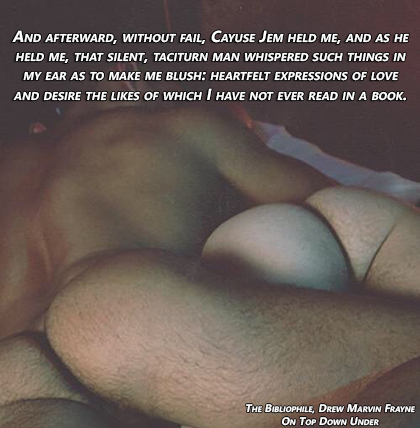

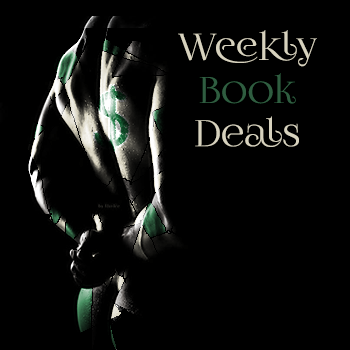


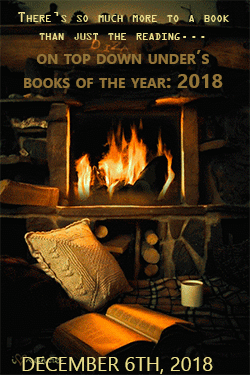
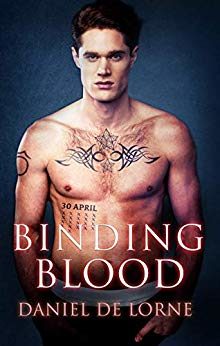
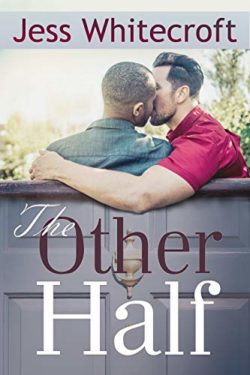
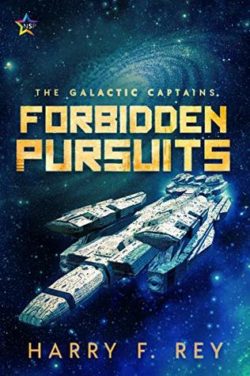

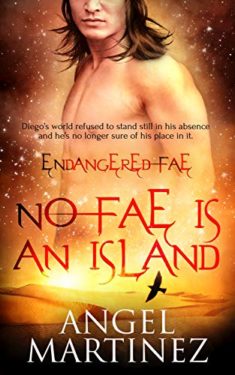
This looks like a beautiful story. As someone who has kept a journal of some sort my entire life, I love the idea of parts of stories being told via journal entries. Journals are personal so you’re often able to see a side of a character that you may not see otherwise, a side that comes from the heart. It’s been a long time since I’ve added a historical book to my TBR. This will definitely be going on there. I love the visuals, the quotes, and I love how different the characters are. They’re different but they seem to… Read more »
This book is completely told using a journal and when you journal events and life it’s sporadic, so the chapters are always a date, and not one after the other. It’s very well thought out. It’s so true, when someone journals or diarises you get to see their mental machinations. I hope you do read it. You’ll enjoy the use of the language because it fits and isn’t – ‘dang, goldarnit, lookie here now,’ I know you know what I mean. You’ll be very pleased with that. I remember well when you read the Valley books, and look at how… Read more »